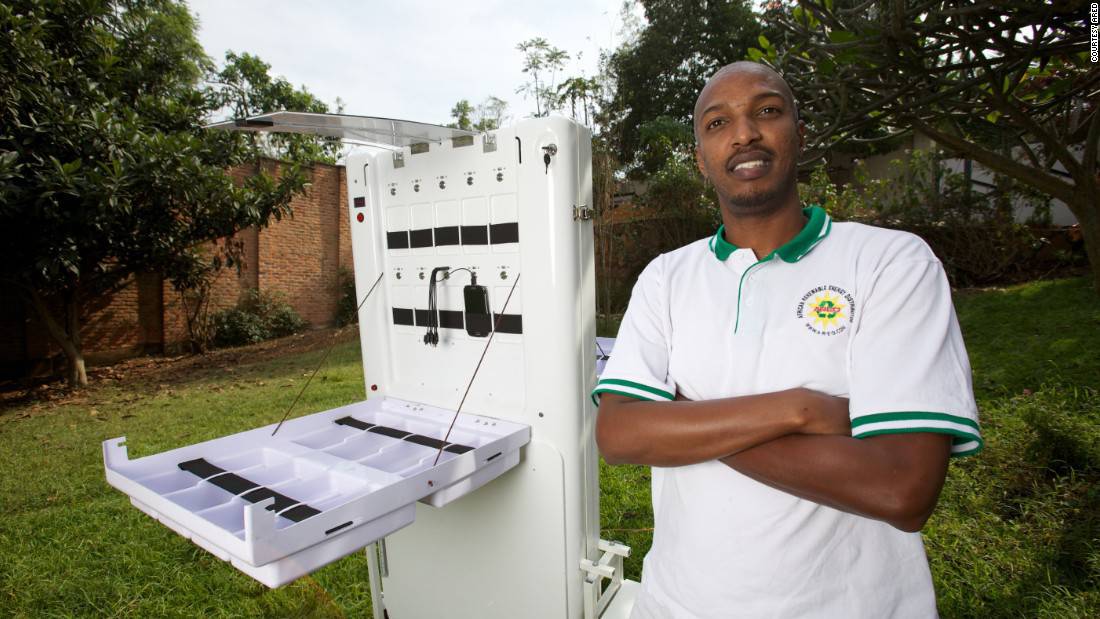Solar-powered kiosks can go a long way in solving the power, and connectivity problems not only in Rwanda but also in entire Africa. This project which is enormously known as an African Renewable Energy Distributor (ARED), was founded by Rwandan residents by the name Henry Nyakundi. Henry and his team have already set up twenty solar-powered kiosks that are currently operating in Rwanda, and they are aiming to scale it up. To achieve this, Nyakundi and his team are now looking for funding through inclusive business platforms. More information about their project is as discussed below.
Problems solved by solar-powered kiosks
The primary role of coming up with this low-cost technology is to address the unemployment issues that are existing in Rwanda. This is brought about by the fact that most of the businesses are too expensive for an average person to set them up. So, this technology has emerged to provide low-income people to start their business and makeover a double income per capita. It also provides a solution to a lack of energy access in most parts of the same country. For instance, more than 70% of the people living in Rwanda have cellphones, but less than 20% of the same population have electricity in their homes. This, therefore, means that a large group of people go to charge their phones in the nearest town. Thanks to portable solar kiosks which are currently charging small electronic devices at an affordable cost in the entire nation, particularly in rural areas. Finally, these kiosks are offering a low-cost internet through an inbuilt WI-FI system. This makes it easy for people to use a small amount of their income in accessing the internet.
Other services offered by solar-powered kiosks

This company focuses mainly on value-added services that can be sold electronically. For example, in Rwanda, solar-powered kiosks sell airtime, Iwasa (home electricity bills), and carrying out specified money transactions. Furthermore, they are planning to add other options such as payment of taxes and insurance covers. It is easy to carry out such operations because they are done by franchisees who use mobile phones and tablets that need a constant supply of energy. The kiosks produce the required power. Therefore, the energy problem is not a problem for them. It is important to note that solar-powered kiosks have a structure of profit-sharing with all its franchisees whereby it collects one per cent from the sales made from them.
The kind of support given by the company to entrepreneurs who want to start solar-powered kiosks
This organization uses a franchise business model to promote the newbies at the base of the pyramid, whereby they pay US$800 to start this business. From this amount, the franchisees are assured of getting insurance, 3-day training, transport of the kiosk to the working location, and maintenance of the kiosk. The same amount also covers the tablets that they usually use to sell all the electronic vouchers but later are expected to pay a yearly renewal of $ 50 that includes maintenance and insurance fee.
Read next: A Complete Guide About Freshwater Biome
Achievements made by solar-powered kiosks
Since its establishment, this business has covered a lot, including setting up the programs for women and people with disabilities. This was initiated after two years when Nyakundi and his team realized the impact that can be imparted by their business model and technology to women and disabled individuals. It is important to keep in mind that thirty per cent of their franchisees are made up of such individuals, and they are aiming to increase that number to 50%.
The vision of a company five years from 2020
In this specified period, this company envisions covering major African countries such as Kenya, Sudan, Ethiopia, and others. They are already receiving requests from such countries, but they have to finish building their future generation kiosks first that will allow them to expand in such activity. They firmly believe that their project will not only have a positive social and environmental impact but will also offer a sustainable business opportunity to individuals intending to duplicate this business model in their respective countries.
You should like also: Fastest Electric Cars in the World in 2020
Challenges facing solar-powered kiosks
The unique nature of these businesses has made it hard to change the mindset of potential investors on its sustainability. Product development is also capital intensive, and it always takes time to come in partnership with the appropriate telecom company. Furthermore, it is a challenge to access financing, as most investors prefer to carry out business with more established companies.